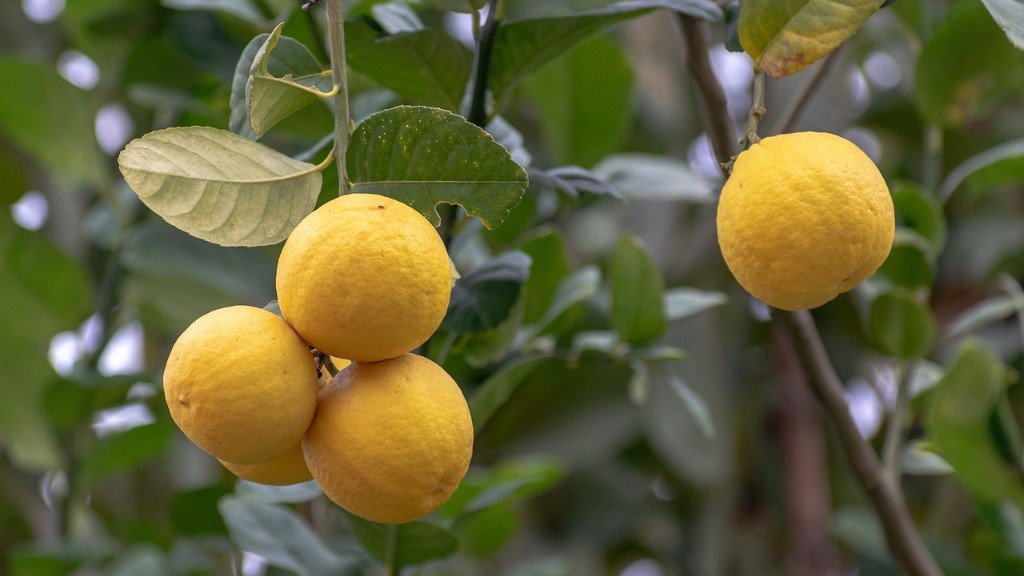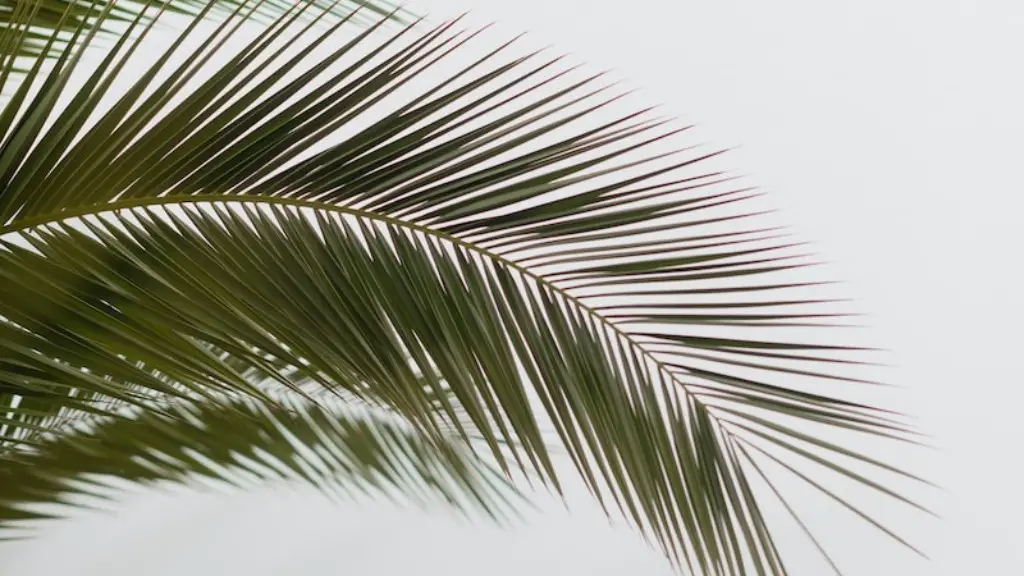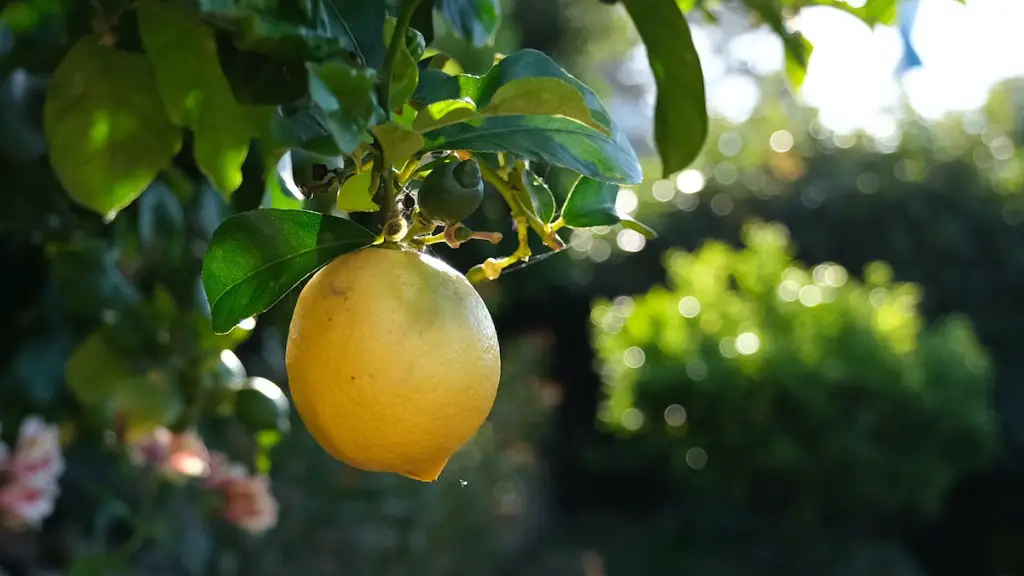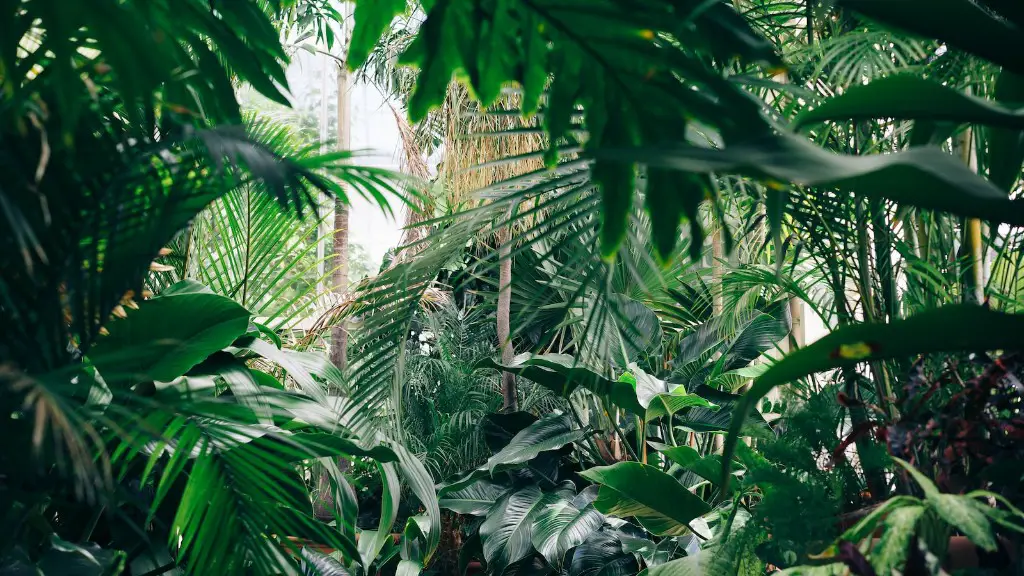Dwarf Meyer lemon trees need adequate amounts of water to grow and thrive; however, too much water can be problematic. Knowing exactly how much to water, and when, is essential for any gardener. Providing the right amount of water to your dwarf Meyer lemon tree is a delicate balance between keeping it alive and healthy while also avoiding too much water.
When watering your dwarf Meyer lemon tree, it’s important to provide enough water to moisten the heat. Overwatering, or giving a tree too much water, will cause oxygen deprivation in the soil and root rotting. To avoid these issues, it’s important to water your tree deeply, but infrequently; it’s best to wait to water until the soil is dry at least 1-2 inches down.
The amount of water a dwarf Meyer lemon tree requires will depend on the time of year and your local climate. In the summer months, you should water your tree every 7-10 days and in the winter months, every 10-14 days. Make sure you’re checking the soil before watering, as that will give you a better idea of when the tree needs to be watered. Additionally, keep an eye on the rainfall; if your area has received a significant amount of natural rainfall, you should reduce the amount of water you give your tree.
Watering your tree correctly can be difficult, especially in climates with hotter temperatures. To help with this, consider using mulch around your tree to retain moisture and help keep the soil cool. Additionally, a soaker hose can be helpful for keeping the soil moist, and it ensures the water goes where it needs to. You can also invest in a drip irrigation system, which delivers water slowly and is beneficial for larger specialized gardens.
It’s also important to fertilize your dwarf Meyer lemon tree correctly; adding too much fertilizer can also lead to root rot. It’s best to use a specialized citrus fertilizer; these fertilizers can provide nitrogen, phosphorous and potassium, which are essential fueling components for a healthy tree. Additionally, organic fertilizers such as composted manure can be beneficial too; these fertilizers can provide many of the same nutrients as a traditional fertilizer without the harsh chemicals.
With a little knowledge and proper care, you can create the ideal environment to ensure your dwarf Meyer lemon tree is thriving and producing sweet, juicy fruit. It’s important to remember to provide your tree with just enough water, Mulch around the tree to retain moisture, as well as use a special citrus fertilizer and composted manure to help your tree thrive.
Improving Soil Quality
It’s important to understand that the soil in which the lemon tree is planted plays a major role in how much water it needs to thrive. If you’re plant is growing in clay soil, it’s likely going to need more water than those planted in sandy soil. Clay soil holds onto moisture more than most soils, so it will require less water than sandy soil. Therefore, it’s important to take soil type into consideration when determining how much water your lemon tree needs.
It’s also beneficial to add soil amendments and organic matter to your garden to improve soil quality. This can help to improve drainage, optimize nutrient retention and improve water absorption. Adding organic material, such as compost and mulch, can also help to build the healthy soil your tree needs to survive.
You may also consider adding plant cover. Plant cover helps to protect the tree from rough weather, such as hail or heavy winds. Additionally, it can help to reduce the amount of water loss as it acts as a barrier to the sun’s rays, preventing excessive evaporation. This can reduce the amount of water you need to give your tree.
Lastly, consider how you irrigate your tree. You can use a sprinkler system or a soaker hose, both of which provide the tree with the water it needs. Sprinklers are beneficial for larger areas and can help to control the amount of water you give your tree. A soaker hose can be beneficial as it can help to retain water and provide a longer slow-release of water to help the tree’s root system.
Watering Considerations
It’s important to water your tree properly as too much water can cause root rot and other issues. Too little water can cause stress on the tree and can even kill it if it’s not addressed. Therefore, it’s essential to know how much your dwarf Meyer lemon tree needs.
You should water your tree deeply, but infrequently and wait to water until the soil is dry 1-2 inches down. The amount of water your lemon tree needs will depend on the time of year and your local climate. Additionally, you should take into account how much natural rainfall you’ve had and any temperature swings, as this can affect how much water is needed.
Understand that during hot temperatures, your tree is going to need more water than if it’s cooler outside. On average, during the summer months, you should water your lemon tree every 7-10 days and every 10-14 days in the winter months. You want to make sure your lemon tree isn’t letting its soil become too dry, as this can lead to a weakening of the root system and even death.
After the tree has been established, you’ll need to water frequently and in adequate amounts. As a general rule, lemon trees should be watered with no less than three to four inches of water every week. During times of extreme heat or drought, you may need to provide some extra water for your tree.
It’s also important to remember to use water regularly, as allowing soil to dry out too much can be just as damaging as overwatering. If you’ve been experiencing dry, warm weather, you should continue to give your lemon tree an inch or two of water every seven to ten days.
Using Mulch
Mulch is an essential element to consider when watering a dwarf Meyer lemon tree as it retains moisture and keeps the soil cool. By adding a layer of mulch to the bed, you can help ensure the tree has enough water and reduce the amount you have to give. Additionally, mulch acts as a replacement for weeding, as the mulch helps to prevent any unwanted plant growth around the tree.
When adding mulch, it’s important to create a three to four-inch-thick layer away from the tree’s trunk. The mulch will help retain moisture and will also help to decompose and break down, adding organic matter back into the soil. This organic matter helps to optimize nutrient retention and improve water absorption. Be sure to add a regular layer of mulch; this will reduce the need for supplemental watering.
Additionally, mulch can help to control the temperature around the tree, keeping the root system of your tree healthy and intact. Though your tree is a smaller tree, adding the right amount of mulch can make a big difference in helping to regulate soil temperature and keep your tree hydrated.
When adding mulch, it’s important to use only materials approved for organic gardening. Many different materials can be used as mulch, including shredded bark, peat moss, straw, pine needles, and pine bark. Whatever material you choose, make sure it’s natural and organic.
Conclusion
Dwarf Meyer lemon trees are great for small-scale gardens and balconies, however, it’s important to understand the needs of the tree and provide enough water. Knowing how much water your tree needs and when to water it can be difficult and is essential for any gardener. By following the tips outlined in this article, you should be able to create the perfect environment for your dwarf Meyer lemon tree.
Making sure you provide your tree with enough water, as well as mulching and fertilizing your lemon tree correctly, is essential for healthy growth. Remember to water your tree deeply, but infrequently and give it roughly an inch or two of water every seven to ten days. By following these tips, you should be able to keep your dwarf Meyer lemon tree alive and healthy.





